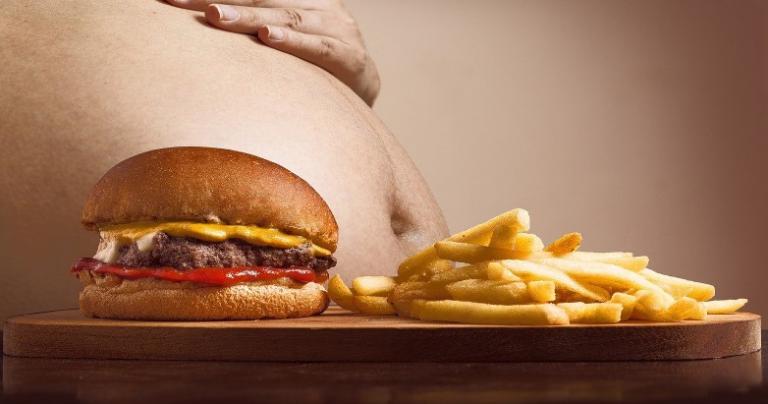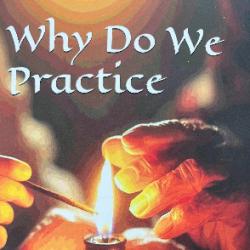
Information overwhelm is what we feel when our brains have been overloaded with too much information. Unfortunately, the information doesn’t even have to be good for us to feel exhausted by it. Our brains use a lot of energy to take information in, organize it, and reflect upon it. The result is that we feel tired and motivated to do much else beyond refreshing our social media feeds. It’s no secret that the Internet has been one of the greatest inventions of modern human history, but it certainly has its pitfalls: data security breaches, cyberbullying, and the Hamster Dance website from the early 2000’s. Lest we forget – we must all bow our heads.
The Internet liberated most of us from the painful experience of using the library card catalog for researching topics. However, it now inundates us with incredible volumes of information on a daily basis. The question remains: are our brains capable of handling that much information? This article from Scientific American speaks to the memory storage capacity of human brains, which is massive (about a million gigabytes of info storage). Apparently we shouldn’t ever fear “running out of space,” but should we aim to ever fill it to its capacity?
The Information Food Coma
It takes energy to consume content, particularly while reading. The movement of our eyes from word to word combined with the time it takes for our brains to register what it is we’re reading is using precious brain power. Then, from concept to concept, we are asking our brains to reflect upon what we just read. We should remember that our brains work and train like muscles, despite being a globulous lump of grey matter. What should we do when our muscles get tired? Rest them, because well-rested muscles get stronger and repair more quickly. But we don’t do that — instead, we continue doom-scrolling for hours, and the cycle of information exhaustion continues.
What are the “symptoms” of information overwhelm? They can vary from person to person, but you may experience exhaustion, forgetfulness, and a decreased attention span. You know that “food coma” sensation that comes from stuffing your face with a large burrito covered in guac? The same goes for consuming too much information. You’ll make yourself ill with it, even if it tasted so f-ing good.

In 2017, the Center for the Digital Future posted in its “15th annual study on the impact of digital technology on Americans” that the average American spends about 24 hours per week on the Internet. That’s a part-time job, my friends. These days, most “baby witches” consume their information from YouTube, Instagram, and TikTok. These sites are created to relay tons of information from thousands of sources in as short as time as possible. Just like eating chips, you can never watch just one Youtube video. They’re short enough to keep you wanting more – in fact, they’re designed that way. Subscription-based content further exacerbates this problem. So, now we’re getting a shit-ton of content, everyday and all week long. We consume our information like we consume junk food and it doesn’t satisfy us for long.
Sharing Information Has Changed
For those of us who have been in the pagan community for a while, we accessed information the old-fashioned way: sneakily, and at our local libraries, Internet cafes, and bookstores. The first book I read about Wicca was Scott Cunningham’s Wicca: a Guide for the Solitary Practitioner. I borrowed it from a friend and read it 2 or 3 times before being able to afford my first book: Silver Ravenwolf’s Solitary Witch. Wicca was just getting big during that time, so there weren’t yet as many resources for us former (read: older) n00bs.
Back then, we had more time to read information and reflect upon it before moving on to the next source. Being young and broke meant that we had to stretch our enthusiasm for each resource, too. Websites dedicated to Wicca and witchcraft weren’t great back then and so we relied on Internet forums and chat rooms to exchange information. If anything, our generation likely craved more information than was readily available at that time.
The advent of Facebook and YouTube really changed the game with how people choose to socially interact with others online. As a result, Internet witch culture has dramatically changed. You, too, can share a spell via an image overlaid with text on Instagram. Mystical! But how has this fast-paced Internet culture of sharing ideas and opinions impacted our lifestyles? How about our Craft practices? These days, it seems people are more concerned with creating and consuming information content than putting any of it to practice. You know, the practice that’s alone and away from a camera lens.

La-Z-Witches
Reading and consuming too much information without putting it to physical practice has led to what some of us affectionately call “armchair paganism.” It’s a bubble of laziness and comfort that we’ve put around ourselves to cope with information overload. You might be the witch who reads a few books per month and loyally watches your witchy Youtube channels. You actively listen to all the best occult podcasts and you talk a big game about all the shit you know about Abramelin Oil. Yet, you have very actual little practice under your belt to show for it.
Information overwhelm can do more than make us fatigued — it can also exhaust our desire to practice our Craft. We’re spending too much energy feeding our metaphorical hunger for information by consuming vast quantities of content. As a result, we aren’t leaving any room for true spiritual nourishment, which comes from our personal practices. If you have found that your practice has suffered recently then take a long, hard look at how much time you’re spending online. Put down the books on witchcraft and actually go practice something.

Coping Requires an Active Approach
Coping with information overwhelm requires an active approach. I, myself, am guilty of being lazy from time to time but I’m taking steps to remedy it. I’m putting down the books, I’m stepping out of Facebook groups and I’m instead spending time practicing my Craft. Consuming and creating information at the rate that we do is addictive and I’ve found it challenging to cut the cord. When your brain isn’t exhausted then you have more energy for other things, like willfully ignoring that text from an old high school friend who wants to sell you some of their MLM shit.
I could achieve a baseline coping level status through reading just one of my Craft books at a time instead of three. I could also only spending just a half hour per day on social media instead of half the day. I’d have greater motivation to practice if I just freed up extra time for myself. Instead, I use my time reading, listening, and watching others do what I should be doing or telling me I should do.
Coping Requires Intention
You have to see the value in freeing up time for your spirituality in order to begin coping with information overwhelm. The heart of our practice lies in what we do when there’s no one watching or recording what we’re doing. We live in a culture that tells us that if it isn’t on social media then it doesn’t matter. Pics or it didn’t happen, right?
Some people believe that magic works because of the intention that’s put into it. If our intention when posting a pic of our virgin-lit black flame candle isn’t to impress others then what (or who) is it for? The answer is that witchcraft on social media is largely performative. Like, it’s a huge wand-measuring contest. We want to be praised for how much we know, how much we’re practicing and for our creativity while doing it. We need others to see it, to like it, and to engage with it in order to validate what we’re doing. How exhausting!
Try getting into the mindset that your practice isn’t for anyone but you. Honestly, no one really cares about what you’re doing. People spend no more than a few seconds judging that Instagram photo you dedicated so much time to editing. The moment we choose to validate ourselves through our actual practices instead of through others is when we can begin to cope with information overwhelm. So, put down the book, close your social media apps, and go practice something. Anything. Go. Now. I’m going to count to three – 1, 2, 3. Okay, let’s try that again. I know this is hard. 1-Mississippi. 2-Mississippi. 3-
Follow me on Instagram @thegardnerianlibrarian !


















